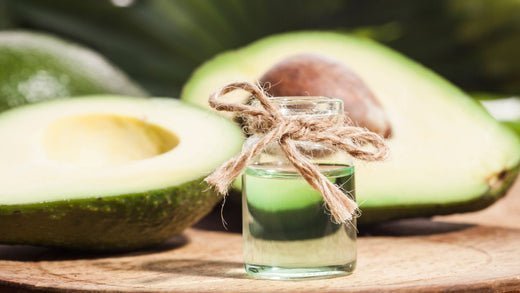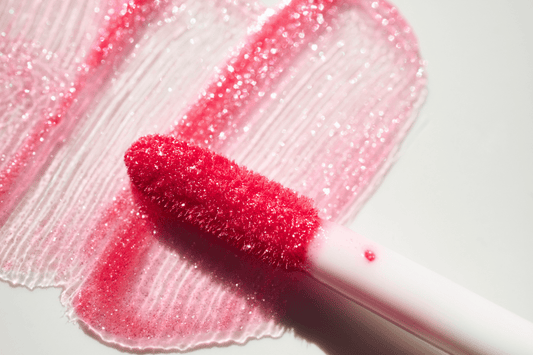Many people in the cosmetics industry don’t want to reveal the secrets behind the purity of their oils. But we believe you deserve to know the truth.
Let's explain why oils are adulterated and how to ensure you are using 100% pure oil.
Today we are addressing the purity of avocado oil.
Keep reading and uncover the truth behind what you're really buying when it comes to avocado oil.
Contents
- What Are You Really Buying?
- What is Avocado Oil?
- What Are The Different Types of Avocado Oil?
- How is Avocado Oil Made?
- How is Avocado Oil Adulterated?
- How to Prevent Buying Adulterated Avocado Oil?
- Conclusion
What Are You Really Buying?
We tested the purity of 7 samples of avocado oil from different online retailers.
Only two of the oils passed the test!
Now, these results are actually a bit better than some of our other tests. Shocking right?
These results showed that most of the oils were either a blend of:
- Sunflower oil, soybean oil and palm oil
- Sunflower oil and olive oil
But why are suppliers selling this as avocado oil?

What is Avocado Oil?
Avocado oil is made from the avocado fruit. The flesh of the avocado is pressed to make the pure oil. It’s an amazing moisturiser and you can use it in soap bars, moisturisers, hair masks, cleansing balms and conditioners.
What Are The Different Types of Avocado Oil?
When it comes to avocado oil, you’ve really only got these choices:

Refined or unrefined?
Refined avocado oil is usually expeller pressed. A refined oil has the natural colour and smell removed. However, the natural properties of the oil still remain.
This can often be the better choice when using it in cosmetics with fragrance. Due to its lack of scent and colour, it makes it easier to control the colour and aroma of a final product.
Unrefined avocado oil is as it sounds, it has not been refined. Unrefined avocado oil is usually cold pressed instead and has its natural colour and scent. Many people prefer cold pressed avocado oil, for its more natural look and scent, when creating natural homemade cosmetics.
Organic or non organic?
Organic avocado oil has had no synthetic pesticides used. All of our organic products are certified organic by the Soil Association. We are inspected annually to make sure we comply with their strict regulations.
Organic avocado oil helps promote soil health, promote biodiversity and reduce water pollution. The use of organic avocado oil has a positive impact on climate change and ecosystems.
Natural oils that are not organic have had synthetic pesticides used during the production to reduce pests on the plants. This makes it easier to produce larger quantities at a cheaper price.
Cosmetic grade: What does it mean?
Pretty much all avocado oil is produced for the food industry. We buy it from the same producers, but we only sell it as suitable for cosmetic use. That’s because we’re a cosmetic ingredients company, not a food company.
All good quality avocado oil should have been produced as food grade. Any “cosmetic grade” avocado oil is extremely likely to contain no actual avocado oil.

How is Avocado Oil Made?
The avocado flesh is pressed, processed and then the oil is collected.
There are two main methods to press the avocados:
- Cold pressing (The avocado fruit is pressed at temperatures below 35ºC)
- Expeller pressing (The avocado fruit is pressed at temperatures above 35ºC)
Pure avocado oil on the market is usually produced from avocados that are too ugly for the supermarket shelves.
Supermarkets are really picky! So you can imagine there are a lot of wasted avocados for us to upcycle for cosmetics.
But from our testing, we found that not all avocado oil is made of avocados!
I know, it’s shocking right? But this is the reality in the avocado oil industry. So let's get into it!

How is Avocado Oil Adulterated?
Producers are using cheaper oils and blending them together until they create something that looks just like avocado oil. In other words, it’s fraud!
So how can we tell? This is a bit technical, but bear with me…
To put it simply, natural oils are made up of fatty acids and each natural oil has a unique combination of fatty acids.
There are a few main types of fatty acid like oleic acid, linoleic acid, stearic acid.
Every oil is described by their fatty acid profile, which tells you the percentage of each fatty acid in the oil.
For example, this is the range you would expect to see the avocado oil fatty acids in:

From our tests, there are a few blends on the market:
- Sunflower, soybean and palm oil
- Sunflower, soybean and olive oil
- Rapeseed, sunflower and palm oil
- Olive and sunflower oil
All of these are cheaper to make than genuine avocado oil. But none of them have any avocado oil!
Here is the fatty acid profile of one of the sunflower, soybean and palm blends that we tested compared to pure avocado oil:

It looks almost identical to an avocado profile.
However, if you look at the palmitoleic and stearic acids, you may notice they are not within the range from the earlier table.
Being able to identify these anomalies is a good start to finding the adulterated oils. It is so important to do everything you can to guarantee the purity of the oil you use.
To start, you won’t receive the natural benefits you expect from pure avocado oil. There is also a risk of allergic reactions, especially with sensitive skin. But most importantly, you aren't getting what you paid for!

How to Prevent Buying Adulterated Avocado Oil?
Third party testing. That’s the only way to know if the oil is pure.
So why doesn’t everyone do this? It’s expensive, time consuming and you have to know exactly what you're testing for.
Unfortunately, it gets even more complicated as there aren't strict international standards for avocado oil which makes testing difficult.
The fatty acid composition of avocado oil can vary depending on where it is grown, which types of avocado are used, weather conditions and more.
So if the fatty acids on the COA fall outside the ranges we’ve provided, there is a chance it is still pure. Like I said, it’s a bit complicated.
Here’s what you should test for:
- Test for olive oil (it is the most common oil used in avocado oil adulteration). If there are signs of olive oil, then it is not pure.
- Test for sunflower oil, there should be no traces if it is pure.
If both of these tests come back negative, then we’re satisfied that it’s pure even if the fatty acids are slightly out of range.
How to Tell if Your Supplier is Trustworthy?
To be honest, it’s hard to tell. But, there are a few actions you can take to check up on your supplier.
Here’s a checklist:
- Has your supplier done their own analysis of the oil? If they are relying on supplier documentation it means they have no idea what is in the oil.
- Do they actually know who made the avocado oil? If there’s no traceability, there’s no honesty.
- Do their specifications match the ones we gave above? We’ve seen many, many specifications that don’t. All of these are designed to make sure that adulterated avocado oil passes off as genuine.
In our experience, most of the adulteration takes place with the clear coloured, refined avocado oil.

Conclusion
Don't be fooled by dishonest suppliers! Make sure to do your research and ask brands directly about their avocado oil. 
Our promise: We will only sell 100% pure avocado oil. We have visited our suppliers to see the production process and to ensure they meet our standards. Our avocado oil is also tested at a third-party lab to ensure it is pure.
Here at The Soapery, we pride ourselves at finding the most natural, pure oils for our customers. We want you to experience the incredible properties of avocado oil, which is why we sell 100% pure and natural avocado oil only.
Continue Reading
Now you have read all about the purity of avocado oil, why not continue reading?
Want to make a traditional soap? Try out our tallow soap recipe!
Learn about eucalyptus benefits with our eucalyptus oil for hair blog!
Interested in cold process soap making? Check out our avocado soap recipe!
Let us know your thoughts on the purity of avocado oil in the comments!



